Search Images
Browse Content (p. 1547)
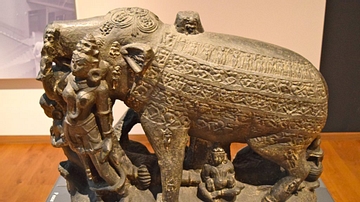
Image
Varaha
A stone statue of Varaha, the boar incarnation of Vishnu. The standing figure is Bhudevi, the Earth goddess whom Varaha was sent to rescue. From northern India, c. 900 CE. (Ashmolean Museum, Oxford)
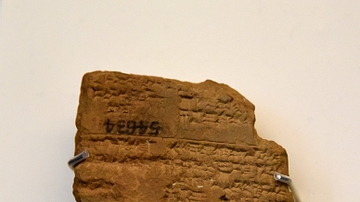
Image
Mesopotamian Tablet Describing the Walls of Babylon
This clay tablet fragment gives detailed measurements for the inner city wall called Imgur-Enlil at the start of Nebuchadnezzar II's reign. It names landmarks including Zababa and Urash gates. Modern surveys show that the figures are realistic...
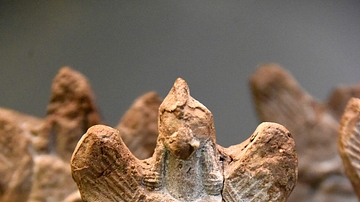
Image
Bird-headed Apkallu for Home Protection
In order to protect the household, these protective figures (apkallu or sage) would be buried beneath the floor in groups of seven. From Nimrud, Northern Mesopotamia, Iraq. Neo-Assyrian Period, 900-612 BCE. (The British Museum, London)
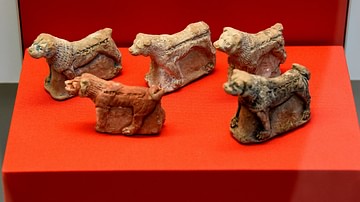
Image
Model Clay Dogs from Nineveh
These counterparts of real mastiffs were buried to guard a property from devils and demons. Ritual instructions for making and inscribing them survive on clay tablets. This pack was found beneath a palace doorway at Nineveh. Each is named...
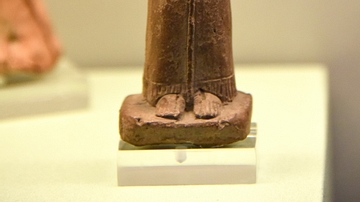
Image
Lahmu
Lahmu was a minor god associated with the god Ea. Ritual texts prescribe that such figures be buried in the corners of a room and in the courtyard. From Nineveh, Northern Mesopotamia, Iraq. Neo-Assyrian Period, 900-612 BCE. (The British Museum...
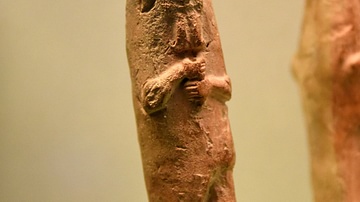
Image
Fish-Cloaked Apkallu
In order to protect the household, this protective figure (apkallu or sage) would be buried beneath the floor in groups of seven. This figurine represents a wise man dressed in a fish-cloak sent by the god Ea to impart knowledge to humans...
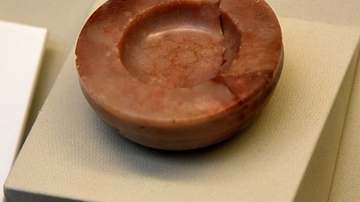
Image
Mesopotamian Cosmetic Bowl
This luxurious marble cosmetic container has an inscriptions marking it as the property of Marduk, god of Babylon. From Sippar, Southern Mesopotamia, Iraq. Circa 625-550 BCE. (The British Museum, London)
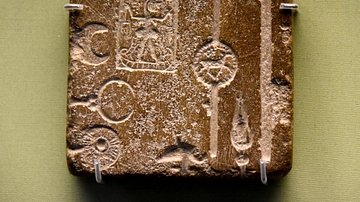
Image
Stone Mould from Nineveh
This mould was used to make small and cheap metal amulets. One is an image of demonic Lamashtu, to keep her away from women and their new-borne infants. From Nineveh, Northern Mesopotamia, Iraq. Neo-Assyrian Period, 800-612 BCE. (The British...
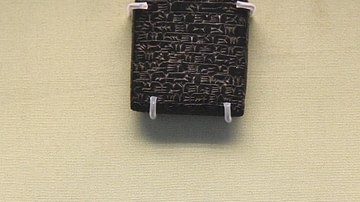
Image
Mesopotamian Amulet Against Plague
Mesopotamian amulet covered with a quotation from a poem, the Akkadian Erra Epic, thought suitable to ward off plague. From Ashur, Northern Mesopotamia, Iraq. Neo-Assyrian Period, 800-612 BCE.
The British Museum, London.
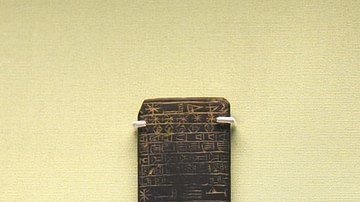
Image
Mesopotamian Amulet Against Ghosts
Stone inscribed with an incantation that has 7 signs, repeated 7 times. It is much worn through use. From Mesopotamia, modern-day Iraq, c. 800-550 BCE.
The British Museum, London.